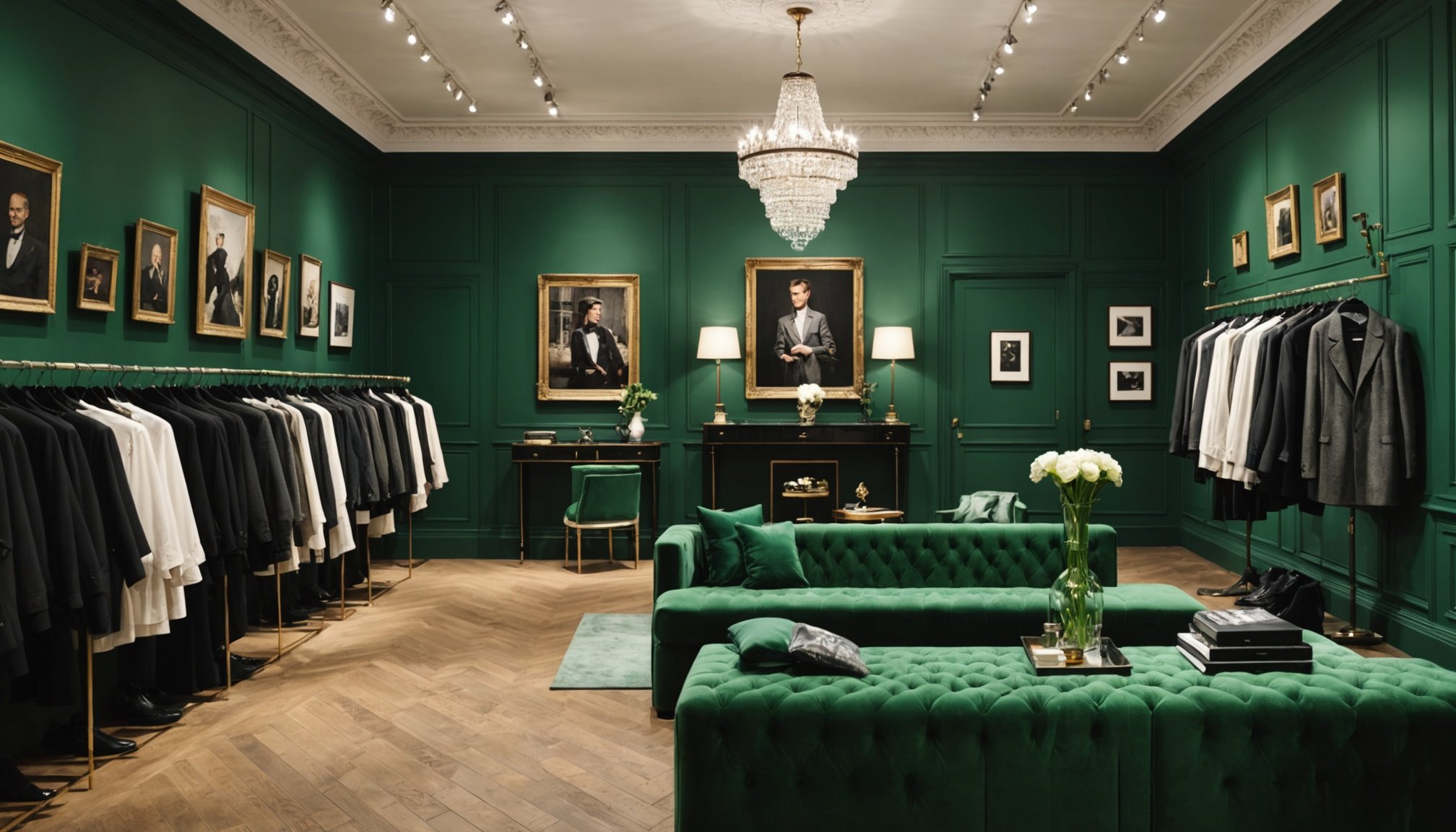Understanding Sustainable Fashion in London
Sustainable fashion has become a significant trend in the London fashion market, driven by a growing awareness and demand for ethical consumerism. The fashion industry in London is witnessing a shift towards eco-friendly practices, as retailers and designers work hard to meet the expectations of environmentally conscious consumers.
In recent years, the importance of eco-friendly practices in retail has grown exponentially. Retailers are not only adapting their product lines but also rethinking their entire business models to reduce environmental impact. This transformation includes choosing sustainable materials, reducing waste, and opting for ethical manufacturing processes.
Also read : Master the Art of Oversized Sweater Chic: Essential Tips for a Flawless and Stylish Look!
Consumer demand for sustainable fashion is a powerful force, significantly impacting the London fashion market. As consumers become more educated about environmental issues, they seek accountability from brands regarding their sustainability initiatives. This demand encourages companies to innovate and prioritize sustainable practices, thus promoting a healthier planet and aligning with customers’ values.
The emphasis on sustainable fashion in London not only reflects a trend but also signifies a larger movement towards creating a more responsible and environmentally friendly industry. As the market continues to evolve, eco-consciousness remains at the forefront, shaping the future of fashion across the city.
This might interest you : Unveil the perfect dress cuts: find your ultimate flattering style for every body shape!
Sustainable Sourcing Strategies
Understanding how to implement sustainable sourcing is essential for fashion businesses in London aiming to maintain an ethical footprint. Sourcing from ethical suppliers ensures the integrity of a brand by promoting fair trade and labor practices. To achieve this, brands must first identify suppliers that align with their sustainability goals, focusing on aspects like fair wages and safe working conditions.
Additionally, incorporating eco-conscious materials is vital. These materials might include organic cotton, recycled polyester, or biodegradable fabrics. Choosing such materials significantly reduces the environmental impact of production. This step not only fulfils legal guidelines but also meets the demands of an increasingly environmentally aware customer base.
A key element in a sustainable sourcing strategy is building relationships with local artisans. Emphasising the importance of local and sustainable sourcing, businesses can integrate unique artisanal products into their inventory. This approach enhances the boutique’s unique appeal and supports the local economy. Evaluating suppliers based on their sustainability practices and actively seeking local partnerships further solidifies a business’s commitment to eco-friendly operations.
Understanding Eco-Conscious Marketing Strategies
In the evolving world of sustainable fashion, green marketing is essential. Effective eco-friendly branding helps a boutique distinguish itself, highlighting its commitment to sustainability. A strong brand message emphasizes the use of ethical materials and eco-friendly practices, resonating with conscientious consumers.
Utilizing social media is a critical component of a successful sustainable promotion strategy. Platforms like Instagram and Facebook allow boutiques to showcase their eco-friendly products and green marketing initiatives efficiently. Engaging content, such as behind-the-scenes looks at sustainable production or stories about ethical suppliers, can captivate audiences and foster brand loyalty.
Building community partnerships enhances awareness and positions a boutique as a leader in sustainable fashion. Collaborating with local environmental organizations or participating in eco-friendly events provides opportunities to connect with the community while reinforcing the boutique’s green values. Such partnerships can lead to valuable networking while driving customer interest and appreciation.
In summary, an effective eco-conscious marketing strategy combines strong branding, social media engagement, and community involvement. These elements not only promote eco-friendly practices but also strengthen a boutique’s position within the London fashion market, appealing to increasingly eco-aware consumers.
Navigating Local Regulations
In London, fashion boutiques must adhere to several London regulations to ensure they operate sustainably. Understanding the environmental regulations is crucial for compliance and maintaining an ethical brand image. These include guidelines on waste management, energy usage, and sustainable materials, essential for reducing a business’s ecological footprint.
Obtaining the required certifications for eco-friendly businesses can be a complex process. Certifications such as the Global Organic Textile Standard (GOTS) or Fair Trade labels help verify the ethical implementation of sustainable practices. These certifications reassure consumers about a brand’s commitment to sustainability.
Successful incorporation of sustainable practices in operations not only meets compliance standards but also enhances a boutique’s appeal to eco-conscious customers. Examples of compliant practices include energy-efficient lighting and heating, waste reduction programs, and sourcing from local sustainable suppliers. By embedding these practices, boutiques can create a meaningful impact on both their business and the broader environment. Collaborating with experts or consultants who specialize in sustainable business models can further assist in navigating these regulatory landscapes efficiently.
Resources for Further Education
Delving into education resources is essential for fashion businesses keen on enhancing their sustainable practices. Numerous sustainability workshops and online courses offer insightful guidance, helping industry professionals stay ahead of eco-friendly trends. Websites such as Coursera or FutureLearn provide structured courses on sustainable fashion, from basic principles to advanced strategies.
Engaging with key organizations advocating for sustainable practices can further bolster one’s understanding of eco-conscious principles. Bodies like the Ethical Fashion Forum and the Sustainable Apparel Coalition provide valuable industry insights and updates, ensuring that businesses remain informed about the latest compliance standards.
Networking opportunities within the eco-fashion community are equally crucial. Events like the London Fashion Week Eco Pavilion offer platforms to share experiences and learn from industry leaders. Participating in these events not only broadens one’s knowledge base but also opens doors to potential collaborations with like-minded businesses.
Incorporating these resources can empower boutiques to align smoothly with evolving eco-friendly principles, ensuring they remain competitive and impactful in the London fashion market. Engaging with educational opportunities and industry networks can serve as a crucial asset to anyone committed to sustainable fashion.
Chic Aesthetic Choices for Your Boutique
Boutique design plays a pivotal role in creating an inviting space that embodies eco-friendly aesthetics. Choosing sustainable materials for the store’s interior is crucial, as it reinforces a brand’s commitment to the environment. Opt for renewable materials like reclaimed wood, bamboo, or recycled metals, which provide a chic and contemporary look while minimizing environmental impact.
Balancing style with eco-conscious elements doesn’t mean sacrificing beauty. A boutique can maintain a trendy aesthetic by incorporating vibrant plants and greenery, not only enhancing visual appeal but also improving air quality within the store. Natural lighting is another elegant choice, as it reduces energy consumption and creates a warm, welcoming atmosphere.
Creating an ambiance that reflects green values can also revolve around thoughtful interior layouts. Employ furniture and fixtures made from ethical sources, ensuring they align with the boutique’s sustainable ethos.
In addition to materials, focus on promoting sustainable behaviour by organizing spaces for eco-friendly practices like recycling stations. These features naturally align with a shop’s green identity, attracting customers who value aesthetics that are both responsible and stylish. By thoughtfully integrating these elements, boutiques can establish a distinct, eco-conscious identity that resonates in the competitive London fashion market.
Case Studies of Successful Green Boutiques
Exploring successful examples of green boutiques in London offers valuable insights for those aspiring to create sustainable business models. These boutiques stand out due to their dedication to eco-friendly practices and innovative approaches in integrating sustainability with fashion.
Highlighting Innovative London Boutiques
Boutiques like Rêve En Vert and The Keep are pioneers in the London fashion market, setting benchmarks in sustainability. They emphasise transparency and partner closely with ethical suppliers to ensure all products are responsibly sourced. By prioritising eco-conscious materials, these businesses demonstrate a commitment to reducing environmental impact.
Learning from Their Success Stories
Many of these boutiques champion community involvement and support local artisans, creating unique product offerings that reflect local culture and craftsmanship.
Key Strategies They Implemented
- Commitment to using sustainable fabrics
- Transparent and fair manufacturing processes
- Building community ties through regular workshops and events
These strategies not only enhance brand loyalty but also position these green boutiques as leaders within the environmentally conscious shopping scene. Emulating such approaches can be instrumental for other businesses seeking to implement effective sustainable business models.








